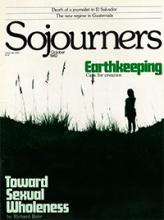One of the first theological and pastoral issues to face the early church was that of race. The racial controversy arose over whether non-Jews could fully and without conditions be welcomed into the church. The Jewish Christians had to struggle long and hard against their cultural assumptions and ethnic biases, but in the end the church decided that there was no place for racial distinctions within the Christian fellowship.
Today this struggle continues in South Africa, where black and white Christians are declaring their country's oppressive racial policies to be a theological issue. They assert that apartheid is a sin and name as heresy its theological justification by the white Dutch Reformed Church.
South Africa's system of strict racial separation has always been an explicitly religious issue. The system originated in the Dutch Reformed Church's 19th-century decision to establish three separate "daughter" churches for black, "colored" (mixed-race), and Asian South Africans, thus prohibiting interracial congregations. The resulting structure provided a model for the segregation system instituted in 1948 by the Afrikaner National Party at the urging of church officials.
To this day, the Dutch Reformed Church, whose membership includes almost all government officials, insists on the biblical justification of its own and the state's racism. In defending apartheid Afrikaner politicians frequently use religious language. The legitimacy of the apartheid system rests almost entirely on a theology that holds that the Afrikaners are ordained by God to rule over their African and Asian neighbors.
Read the Full Article

